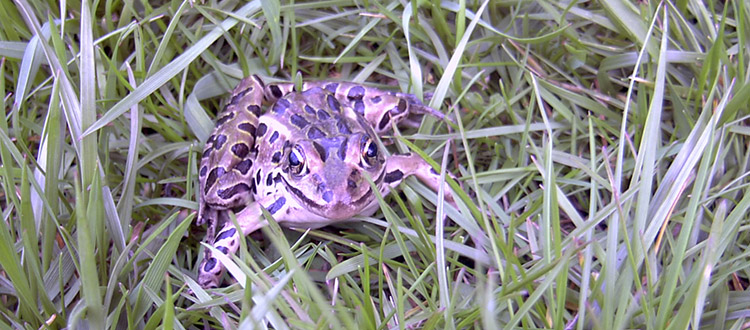Once abundant throughout the state, northern leopard frog populations have been declining since the 1970s. The year 2001 may be the beginning of a reversal of this trend. Results from the Michigan Department of Natural Resources statewide volunteer survey, Ann Arbor’s citywide survey, and the Rouge Watershed Frog and Toad Survey all show that this species was heard in more blocks in 2001 than in past years. Since the cause of the initial decline was never isolated and is probably due to a combination of factors, it is difficult to explain the recent increase. Future surveys will reveal whether this is a real recovery.
Northern leopard frogs are medium to large size frogs (2 – 4.4 in. long) with round spots on the back and sides and a light belly. You may recognize this frog from biology class as they are the frogs of choice for dissections (lab grown). They prefer ponds that stay wet until August and the marshy edges of lakes for breeding. In the summer, mature adults can be found far from any wetlands.
The call of the leopard frog is one of the most unusual. It has been likened to a snore or to the sound made when a balloon is rubbed on something. Males usually float when calling and inflate sacs on the sides of the mouth rather than a throat sac.
Categories
-
Our WorkShort description about the category for context.
